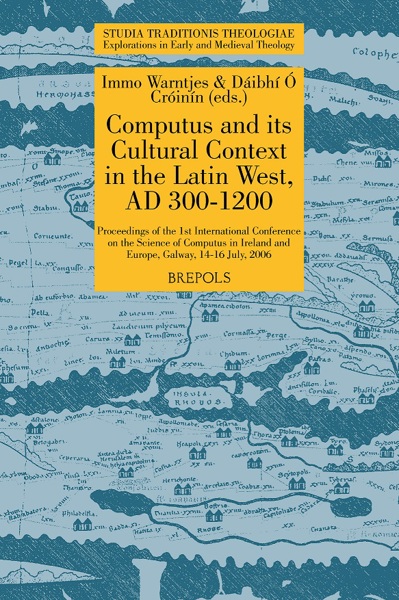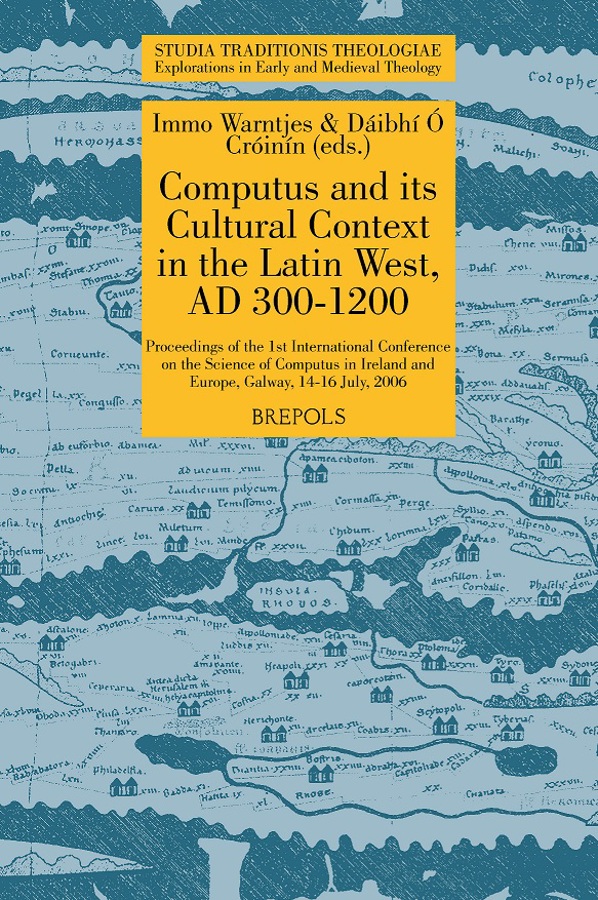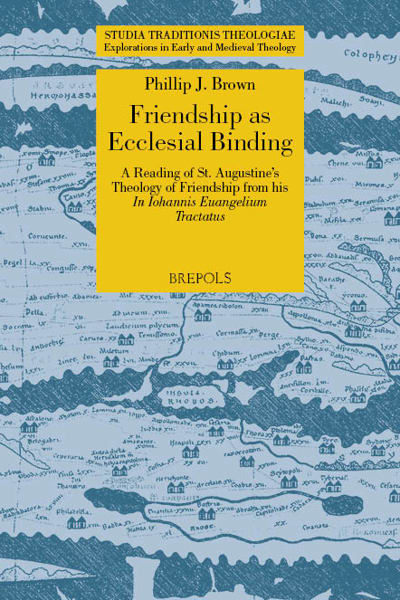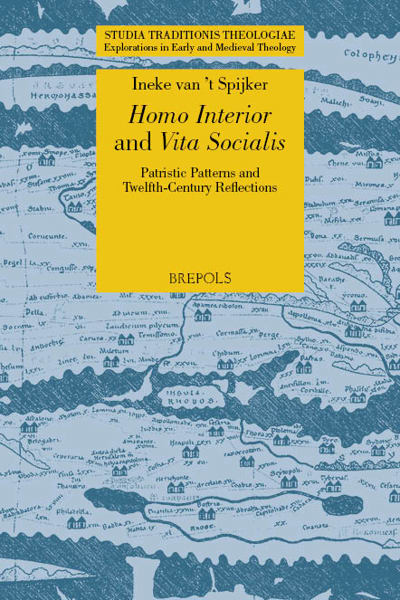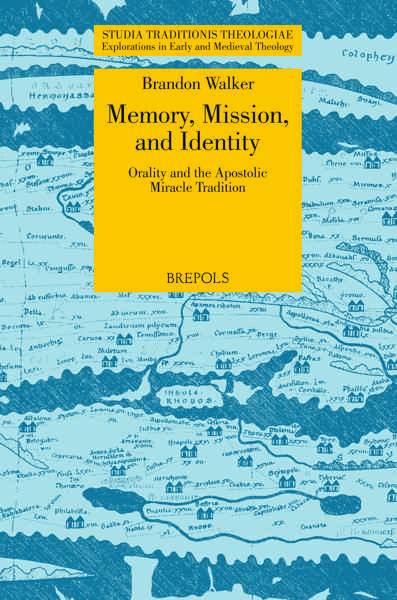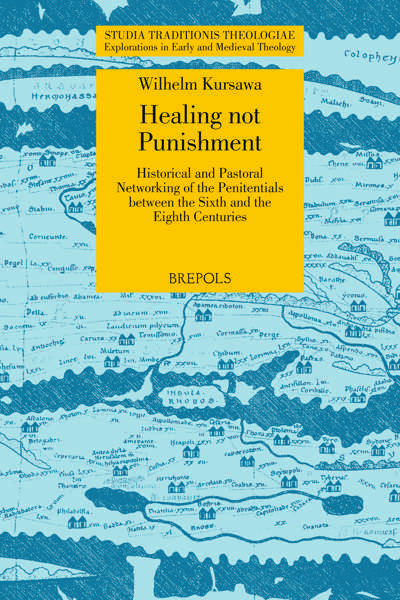
Computus and its Cultural Context in the Latin West, AD 300-1200
Proceedings of the 1st International Conference on the Science of Computus in Ireland and Europe, Galway, 14-16 July, 2006
I. Warntjes, D. Ó Cróinín (eds)
- Pages: xiv + 382 p.
- Size:156 x 234 mm
- Illustrations:16 b/w, 20 tables b/w.
- Language(s):English, German, French
- Publication Year:2010
- € 70,00 EXCL. VAT RETAIL PRICE
- ISBN: 978-2-503-53317-9
- Paperback
- Available
- € 70,00 EXCL. VAT RETAIL PRICE
- ISBN: 978-2-503-53882-2
- E-book
- Available
The scientific knowledge that Irish, English, and continental European scholars nurtured and developed during the years c. AD 500 to c. AD 1200 was assimilated, in the first place, from the wider Roman world of Late Antiquity. Time-reckoning, calendars, and the minute reckonings required to compute the date of Easter, all involved the minutiae of mathematics (incl. the original concept of ‘digital calculation’) and astronomical observation in a truly scientific fashion. In fact, the ‘Dark Ages’ were anything but dark in the fields of mathematics and astronomy.
The first Science of Computus conference in Galway in 2006 highlighted the transmission of Late Antique Mathematical Knowledge in Ireland & Europe, the development of astronomy in Early Medieval Ireland & Europe and the role of the Irish in the development of computistical mathematics.
The proceedings of that conference should, therefore, appeal equally to those interested in the history of science in Ireland and Europe, and in the origins of present-day mathematical and astronomical ideas.
Immo Warntjes is lecturer in Medieval History at the University of Greifswald (Germany). Besides computistics, his main areas of research include the use of languages in Early Medieval Europe, succession to high offices, and Irish political history.
Dáibhí Ó Cróinín lectures in history at NUI, Galway, where he is the Director of The Foundations of Irish Culture project. His research interests are Ireland, Britain and Europe during the Early Middle Ages, computistics, Medieval Latin Palaeography and Irish traditional music and song.
ABBREVIATIONS
FOREWORD
Max Lejbowicz, Les Pâques baptismales d’Augustin d’Hippone, une étape contournée dans l’unification des pratiques computistes latines
Immo Warntjes, The argumenta of Dionysius Exiguus and their early recensions
Eric Graff, The recension of two Sirmond texts: Disputatio Morini and De diuisionibus temporum
Leofranc Holford-Strevens,Marital discord in Northumbria: Lent and Easter, his and hers
Daniel Mc Carthy, Bede’s primary source for the Vulgate chronology in his chronicles in De temporibus and De temporum ratione
Masako Ohashi, The Annus Domini and the sexta aetas: problems in the transmission of Bede’s De temporibus
Kerstin Springsfeld, Eine Beschreibung der Handschrift St. Gallen, Stiftsbibliothek, 225
Brigitte Englisch, Karolingische Reformkalender und die Fixierung der christlichen Zeitrechnung
David Howlett, Computus in Hiberno-Latin literature
Dáibhí Ó Cróinín, The continuity of the Irish computistical tradition
BIBLIOGRAPHY
INDICES
